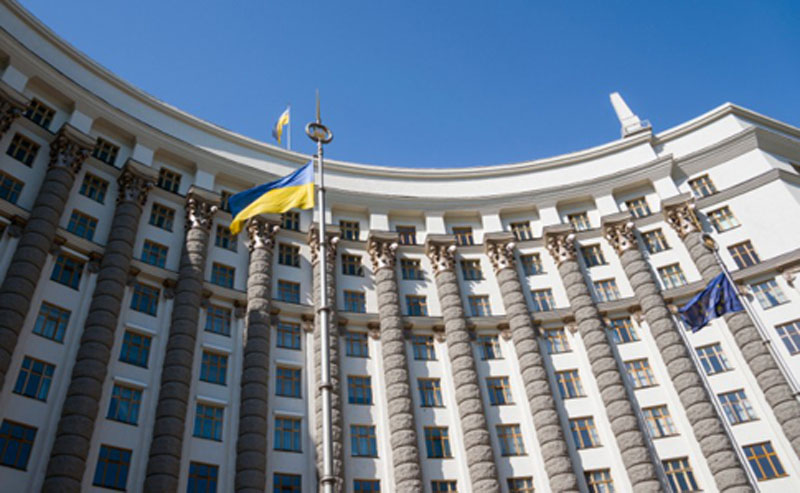К чему приведет оптимизация Кабмина


Чиновников снова планируют сократить. С такой инициативой в понедельник, 4 марта, выступил премьер-министр Денис Шмигаль. Причем изменения планируются на разных уровнях. Что это может дать на практике, какая логика укрупнения министерств и когда может произойти реформа
От идеи к реализации – не один шаг
«Ведем работу по изменению формата правительства. В частности, сокращению количества министерств. Хотим сократить количество министерств на треть, сократить количество государственных служащих», — заявил Денис Шмигаль.
По данным «Апострофа», речь идет скорее об очередном укрупнении министерств. Подобно тому, как это происходило в начале каденции президента Владимира Зеленского. Ликвидировать могут разве что некоторые маленькие министерства, которые сейчас и так находятся без полноценных руководителей. Да и то – окончательное решение еще не принято.
Еще одна часть реформы – создание так называемого «центра правительства». Эта новая структура должна забрать на себя всю хозяйственную часть работы министерств.
«Мы посмотрели по некоторым министерствам и ЦОИВ (центральным органам исполнительной власти — «Апостроф»), функция обслуживания превышала более 30%, что больше, чем общепринятая практика в странах Европейского Союза, — отметил на днях министр Кабинета Министров Олег Немчинов в интервью Интерфакс-Украина, — Поэтому при наличии нормального цифрового элемента мы очень много функционала от тех же министерств можем забрать на центр правительства. И не будет необходимости иметь такой большой аппарат по обслуживанию».
По его словам, правительство уже несколько лет работает с информационной системой управления человеческими ресурсами HRMIS (не путать с HIMARS), занимающейся кадровым и финансовым обеспечением государственной службы. Но подойдет ли она для «центра правительства», пока неясно.
Впрочем, это точно не произойдет быстро. По данным нашего издания, сейчас существует только достаточно сырая идея, концепт будет позже, а начать более конкретные консультации по созданию центра планируют только летом.
Помимо этого, принципиальной будет политическая составляющая в решении судьбы отдельных министерств.
«Я бы сказал, что кадровая перестройка будет связана с новыми кадровыми назначениями. Говорят, что определенное обновление власти будет сделано. Кто-то устал, кто-то не видит продолжения какой-либо стратегии в своем министерстве, поэтому руководящий состав будут обновлять. Вопрос в том, какие политические группы будут привлечены, это будут политические назначения или технократы. Дискуссии продолжаются», — говорит «Апострофу» эксперт Украинского института будущего Игорь Попов.
Что это даст
Впрочем, на фоне планируемых реформ не стоит забывать, что изменения в структуре центральных органов исполнительной власти создают задержки в их работе.
«Это где-то на полгода дискоординация, наработка путей с росписью задач, закрытием других организационных вопросов. Мы такое уже проходили в 2019 году», — говорит «Апострофу» глава департамента в одном из министерств, которое в свое время укрупнялось, и затем снова разделялось.
В то же время, по ее словам, создание «Центра правительства» имеет смысл.
«Тогда условно весь обслуживающий персонал, обеспечивающий текущие процессы, высвободится. Это плохо в контексте рабочих мест, но для сокращения численности министерств и должностей – хорошо. Это то, к чему шли уже не первый год, и вот сейчас придумали как реализовать», – говорит собеседница.
«Идея «Центра правительства» довольно старая. То есть, общий бэк-офис для нескольких министерств, как минимум для сидящих на Грушевского, географически объединенных, это даст определенное улучшение», — соглашается Игорь Попов.
Вместе с тем, возможны трудности для тех министерств, которые находятся дальше от правительственного квартала – речь идет прежде всего о Минюсте, Министерстве обороны или Министерстве защиты окружающей среды и природных ресурсов. От них банально не удобно постоянно ездить в правительственный квартал.
Кого увольнять
В то же время эксперты подчеркивают, что сокращать тех людей, которые действительно занимаются выработкой государственной политики, нужно очень осторожно.
«Механическое сокращение – это ни о чем. Если это об изменении качества работы министерств, то это так. Пока речь идет о механическом сокращении. Но я думаю, что должны быть какие-то изменения качества в организации работы министерств», — говорит «Апострофу» эксперт по реформе государственного управления Сергей Сорока.
И еще один важный нюанс – государственному аппарату постоянно добавляется работа через интеграцию Украины в Евросоюз. Часть работы – на Верховной Раде. Это в основном принятие законов. Но иные направления в большинстве своем делает Кабмин.
«В действительности не вижу возможности для сокращения общего количества служащих в министерствах. Ведь количество задач не уменьшается, — считает заместитель председателя правления в Центре политико-правовых реформ Виктор Тимощук, — В связи с полномасштабной войной и курсом на ЕС работы только прибавляется. Много. Кто-то должен формировать всю эту политику и организовывать ее реализацию, и если говорят, что для победы в войне нам в этом марафоне с врагом нужны лишь мощная экономика и логистика для обеспечения ВСУ, то совершенно ошибочно пренебрегать качеством управления. И тут исключительная роль именно министерств».
Способ решения Виктор Тимощук видит в передаче еще большей части административных услуг местным властям наряду с разумной цифровизацией.
«Они (министерства – «Апостроф») должны создавать правила игры в той или иной сфере, организовывать и контролировать выполнение этих правил. Это то, что на профессиональном языке называется формированием политики», — добавляет Сергей Сорока.
Кадры без премий?
Ведомства можно укрупнять или разделять. Но там должны работать конкретные люди. В этом случае важен аспект заработной платы. Не секрет, что у рядовых государственных служащих зарплаты значительно ниже рыночных. Кое-где это перекрывали за счет незаполненных вакансий – выделенные на них средства перераспределяли имеющимся работникам. И в этом аспекте перемены уже начались. С 1 января заработала новая система оплаты труда госслужащих. Теперь 70% зарплаты составит должностной оклад, и 30% – премия.
Так что если незаполненные вакансии сократят, то и премий не будет. А здесь стоит отметить, что уже к 1 апреля правительство планирует сократить около 20 тысяч вакантных должностей.
Возможно, кто-то «закрывает» вопросы зарплат с помощью коррупции, однако низкие зарплаты наряду с большой нагрузкой остаются среди главных причин увольнений. К примеру, недавно начальник Львовской ОГА Максим Козицкий писал, что с 1 января зарплаты у его подчиненных должны упасть на 36-50%.
Однако, это все же касается специалистов, находящихся на руководящих должностях. В то же время, по данным Минфина, работники не руководящего звена выиграли.
Впрочем, если резюмировать, сокращение количества чиновников и властных кабинетов может и отвечает общественным запросам. Более того, во многих ведомствах действительно нужно наводить порядок. Но при этом как-то нужно сохранить управляемость государственной машиной. И именно это пока будет самым большим вызовом, отмечают эксперты.
Recent Posts
Сбежавший в Швейцарию блогер Станислав Домбровский просит прощения у украинцев
Одесский трэш блогер Стас Домбровский, который в последнее время проживает в Швейцарии, записал видеообращение к…
Александра Устинова и атака на руководство АОЗ: что стоит за волной критики
Александра Устинова, народная депутат, которая в последние дни активно атакует Агентство оборонных закупок (АОЗ) возможно…
Журналисты показали имение киевской судьи, закрывшей дело Приходько
Свобода "под ключ" или манипуляция правосудием? Борис Приходько – нацбанкир времен Януковича и действующий нардеп…
Судьи вне закона
В течение последних трех лет внимание общественности если и бывает приковано к судам, то гораздо…
Артем Ляшанов и bill_line спасают репутацию через суд
Финтех-компания столкнулась с обвинениями в отмывании денег игорной мафии. ООО «Тех-Софт Атлас» (ТМ «bill_line») и…
Криптобиржа WhiteBIT: как Владимир Носов и «регионалы» Шенцевы отмывают деньги и помогают спецслужбам России
Владимир Носов в Украине пытается позиционировать себя как респектабельный бизнесмен и хозяин криптобиржи WhiteBIT. Однако…


